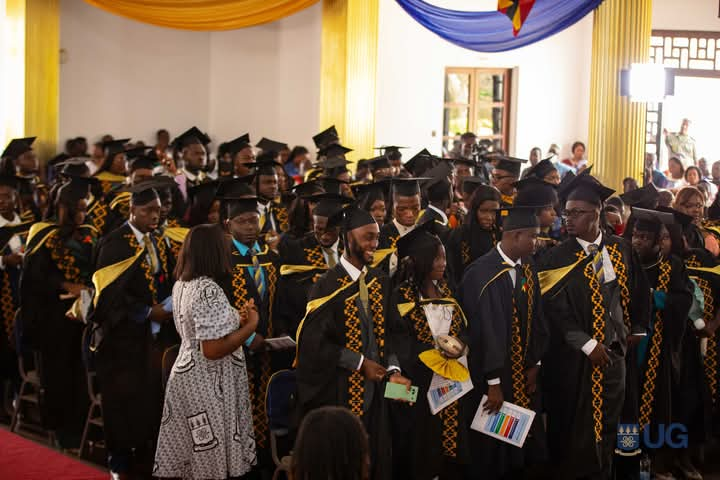By Jibril Abdul Mumuni
Accra, Feb. 21, GNA — An Academic and Engineer has urged graduates to join professional bodies to enhance their career development and contribute meaningfully to society.
Dr. Enyonam Kpepkena, Chair of the Women in Engineering Committee of the World Federation of Engineering Organisations, said professional bodies would not only elevate their expertise but also anchor growth in ethical and respected practices.
She made these remarks at the convocation ceremony for the Schools of Engineering Sciences and Biological Sciences of the University of Ghana, Legon.
She emphasised that academic achievement was the beginning of a life-long career journey, stressing that the knowledge gained at the university was a solid foundation, but continuous learning and professional engagement were critical.
She highlighted her own career trajectory, sharing how membership in professional groups provided her with mentorship, networking opportunities, and platforms to collaborate on transformative projects.
“Professional bodies connect you to peers, mentors, and resources that turn challenges into opportunities. They are spaces where diversity of thought, including gender inclusivity, leads to holistic solutions for pressing global issues,” she said.
The Engineer also stressed that professional organisations helped members to stay ahead of technological advancements while upholding integrity.
She also called on graduates to “champion diversity” within their fields, noting that inclusive environments fostered creativity and progress.
The estimated number of students graduating included Basic and Applied Sciences 1,705, Education 3,413, Health Sciences 1,049, Humanities 6,016, and Graduate Studies 3,567, totaling 15,750.

Mr. Al Wassiu-Abubakari was adjudged valedictorian for the convocation, graduating with a Cumulative Grade Point Average of 3.97.
In his speech, Mr. Abubakari lauded the resilience of the Class of 2024, particularly after navigating the challenges of academics during the global health pandemic.
“We faced the COVID-19 pandemic together with the double-track system, where a 12-week semester’s worth of coursework was compressed into six weeks. Adapting wasn’t easy. We juggled online classes, unstable internet, and the need for strict self-discipline.”
“We attended lectures from our beds, struggled with Zoom glitches, and turned our rooms and balconies into last-minute study spaces. It was a time of uncertainty when we weren’t sure if we’d graduate or just become former students,” he said.
He urged his colleagues to be bold in their writing, intentional in their actions, and zealous in the pursuit of their dreams.
GNA